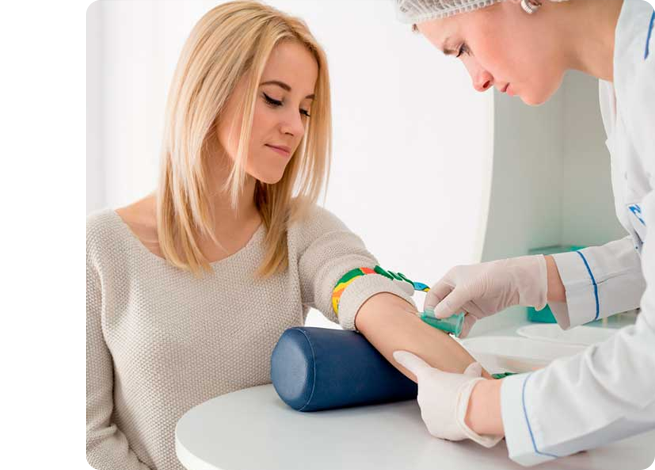Anti Mullerian Hormone (AMH) Test & Ovarian Reserve
Egg reserve test
Women are born with their lifetime supply of eggs, and these gradually decrease in both quality and quantity with age.
Anti-Mullerian Hormone (AMH) is a hormone secreted by cells in developing egg sacs (follicles). The level of AMH in a woman’s blood is generally a good indicator of her ovarian reserve. AMH does not change during your menstrual cycle, so the blood sample can be taken at any time of the month – even while you are using oral contraception.



Age and Female Fertility
The single most important factor influencing your chance of conceiving is a woman’s age.
What age are women most fertile?
Once you turn 35, your chance of conceiving naturally is halved compared to your chance at 20 years of age. At the age of 41, this chance falls to just 4%. That’s the success rate for couples per month of trying when the female is aged 41 to 42.
Why is this? While a woman is born with 2 million eggs, these are the only eggs she will ever have. By the time she hits puberty that number has already dropped to 400,000. And as age progresses, the egg quantity and quality continues to decline.
Men are at less of a disadvantage when it comes to age and infertility, but should still be aware that there is a relationship between the two. The fact is, male factors contribute to over 40% of all infertility cases. While some of these issues can be lifestyle related, abnormalities and low counts caused by other issues can play a role, including age. Learn more about the factors contributing to male infertility.
While we can’t stop or reverse the ageing process, there are positive steps both genders can take to boost fertility and a successful pregnancy.
